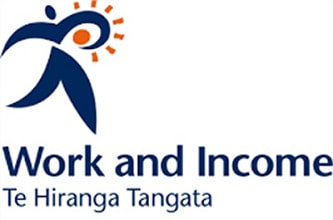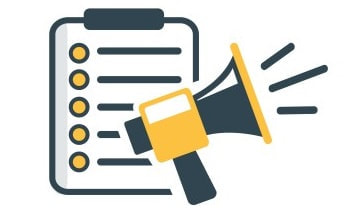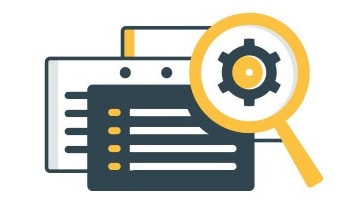Navigating Work and Income Benefits
Our guide explains everything you need to know about how Work and Income works, how to best present your case and must-know expert tips that reveal how to get what you need without delay
Updated 10 May 2023
Dealing with Work and Income will be a new experience for many New Zealanders. The good news is that there is some flexibility around benefits and entitlements. We have put this guide together to outline important information you need to know as you navigate the system.
And navigating Work and Income isn’t easy – our research team (which usually deconstructs complex investment products) believes that it's near-impossible to understand how Work and Income works.
What does this mean when I visit Work and Income?
Our guide covers:
Know This First: Being prepared is essential to maximizing Work and Income entitlements.
If you go in unprepared then the caseworker, in no uncertain terms, can dictate what you can and can’t have. Some clients describe this as being powerless while ‘the government’ holds all the cards. Work and Income is unlike any other government department – you are the client, but you must have patience and push for what you’re entitled to. Their ‘service’ is limited by budgets set by the government, and there’s no way around that.
Dealing with Work and Income will be a new experience for many New Zealanders. The good news is that there is some flexibility around benefits and entitlements. We have put this guide together to outline important information you need to know as you navigate the system.
And navigating Work and Income isn’t easy – our research team (which usually deconstructs complex investment products) believes that it's near-impossible to understand how Work and Income works.
What does this mean when I visit Work and Income?
- Firstly, you won’t be able to sit down with a caseworker, explain your situation, and then expect a list of payments and benefits to be offered.
- Instead, taking the Work and Income survey is a good start to help focus on what you can apply for. After that, you’ll need to drill down to find the relevant additional payments.
- Those most prepared (and familiar with the benefits available and how Work and Income works) will, in many cases, be able to get more of what they need. If you know what you are entitled to before approaching Work and Income then you have a stronger case.
Our guide covers:
- Must-Know Tips for Dealing with Work and Income
- Attending an Appointment
- Frequently Asked Questions
- Sanctions
Know This First: Being prepared is essential to maximizing Work and Income entitlements.
If you go in unprepared then the caseworker, in no uncertain terms, can dictate what you can and can’t have. Some clients describe this as being powerless while ‘the government’ holds all the cards. Work and Income is unlike any other government department – you are the client, but you must have patience and push for what you’re entitled to. Their ‘service’ is limited by budgets set by the government, and there’s no way around that.
Must-Know Tips for Dealing with Work and Income
Work and Income is not a standard government department. To navigate it properly and avoid wasting your time (and delaying payment), you'll need to be fully prepared. If you're not, there's an easy excuse for you to be denied money. Our tips below explain exactly how to avoid the pitfalls while speeding up the process to let you access the help that you need.
Bring a file of essential documents every time you visit a branchWork and Income is largely paper-based and requires regular document checks. Every time you visit a branch, be sure to bring the following essentials:
The best way to organize yourself is to put everything in a clear folder, binder, or A4 envelope and add new documents as you need them. This way, every time you visit Work and Income, you’ll have exactly what you need with no reason to delay your progress. Know this: Caseworkers don't ask for proof to be difficult; they ask because the government’s auditors require Work and Income to justify the payments. If a Caseworker, for example, gives $200 to an applicant and there’s no reason for the money, they can be disciplined. For this reason, bring as much information to your appointment as you can. |
Be 100% honest – if you’re not, you will have problems right awayThere’s no point in hiding the facts about your personal situation. For example, if your tenancy agreement is $300/week but you earn $300/week, it will raise questions about whether you’re taking cash jobs or have flatmates. Don’t be economical with the truth – just tell it like it is – the Work and Income team will appreciate that.
Your living situation affects your entitlements, but when it comes to relationships, many are complicated. You may share a home with an ex-partner or be seeing someone who lives separately. The best approach, again, is to be honest and talk it through with a caseworker. This avoids any problems if a problem landlord reports you to Work and Income for a living situation as a way of dealing with a complaint (and yes, sadly this does happen). |
Consider appointing a Work and Income Advocate – they’re free and can be highly useful (or use a friend or relative)You’re not alone when it comes to navigating Work and Income’s processes. Firstly, you can appoint a relative to help you with your interactions. If that’s not suitable, an advocate can be just as helpful. They are generally free (and funded by the government) and help you progress your case.
Top tip: You may have a friend or family member who wants to help, but make sure it’s for the right reasons. A number of New Zealanders are ‘anti-Work and Income’ from personal experiences. If you appoint an advocate, they need to be calm, willing to listen and helpful at explaining things. It also helps if they know you quite well. |
Be sure to ask for Work and Income's specific form if you need a GP, retailer or anyone else to sign somethingWork and Income is forms based. If you're making a claim, be aware that whenever a caseworker tells you to get something from a third person (doctor, school, landlord etc), you MUST ask for the relevant form to complete. You will need to ask "does someone else need to sign this?" to be sure of the obligations. If they do, mark the relevant section(s) and before the right person signs it.
All too often, people come back with a piece of paper but fail to understand they needed a form. Work and Income staff can become complacent, through no fault of their own, and not remind clients to get the forms they need. Top tip: while the forms are long, read over it as best you can to get a complete understanding. If anything is unclear, ask a caseworker when you submit the paperwork. It's their obligation to support you to complete it and make sure it's accurate. |
Be polite to everyone, from the security guard (first contact) to the receptionist and case managerIt sounds obvious, but a lot of patience and politeness goes a long way. Hopefully, you’ll be a short-term client of Work and Income. Until then, you’ll be dealing with the same people every week - building a working relationship is important.
|
Dress nicely – Work and Income will have a better impression if you make an effortUnemployment brings a lot of emotions, but you’ll feel a lot better if you make an effort to dress up and boost your confidence. If you’re meeting a caseworker for the first time, make an extra effort. Work and Income employees are no different to anyone else – would you focus your efforts on someone who is work-ready or someone who shows up late in pyjamas?
|
Apply for a payment cardAs soon as you meet with Work and Income, apply for a Payment Card. This useful card is loaded with money that you can use in specific shops within 3-7 days. You are entitled to get a payment card the first time you are approved for a food or hardship grant, or you apply for Youth Payment or Young Parent payment.
The sooner you apply for a Payment Card, the more options you have. For example, you can apply for a food grant over the phone the first two times (provided you have not had any other emergency assistance in the last year). You can check all payments and spending on your Payment Card using myMSD online. |
Understand that entitlements are not limits – case managers have the discretion to grant more moneyWork and Income makes available a number of urgent costs up to $200. There is a misconception that the entitlement (i.e. $200 for food) is only available once every six months, but this is not the case. It's also possible for caseworkers to go over the $200 limit in exceptional circumstances, but to do this requires the caseworker convincing their manager that your circumstances are genuine. And, if you find yourself needing similar assistance after a few weeks, you will be able to apply again.
|
Important: You can appeal decisions and complain about the treatment you’ve receivedIf you feel you have been unfairly treated, Work and Income makes it clear how you can complain. You can call the contact centre, visit a branch or make your complaint online. The complaint is seen by the Service Centre Manager and resolutions are monitored.
After a period of time (which Work and Income doesn’t reveal how long), a decision will be provided. If it’s not in your favour, you can lodge a Review of a Decision. You can either fill in a form or just drop in a letter. The decision is then reviewed internally by senior staff and then reviewed by a separate panel. This panel is generally made up of two independent staff members and a community representative - very often the community reps are also benefit advocates. Members of the community have reported that mistaken decisions are often corrected by this process. The process involves attending a hearing where you can explain your situation and answer questions. Don’t be deterred by Work and Income staff who may suggest dropping your complaint and any appeal. The reality is that raising a complaint and then disputing an unfavourable decision adds a lot more work to the already overwhelmed Work and Income staff. However, you are the client and these processes and right to review is integral to the system. Furthermore, Work and Income is paid for by your taxes, so making right what you believe to be wrong is perfectly reasonable behaviour. |
Job assistance is limited in most situationsWork and Income is focused on re-directing a beneficiary towards a job rather than helping them develop career goals and ambitions. In essence, each office is measured by how many people it can get into jobs. There's very little opportunity for caseworkers to explain how industries work and consulting with beneficiaries' plans for the future. It really is jobs jobs jobs first and benefits second. The jobs may be a call centre, packing house, factory or retail. You may be over-qualified, and until 2020 this may have worked against you, but the 2020-2021 pandemic levelled everything and everyone. For this reason, attitude and enthusiasm will play a big part in whether you get the job(s) you apply for.
|
Attending an appointment – follow this proven checklist to reduce anxiety and maximize results
We’ve borrowed the 10-point checklist below from a Work and Income discussion forum, and have re-posted it with slight edits. It is written by someone who was an occasional user of the services and entitlements and experienced a positive experience by following this guidance:
Our view:
- Scrub up before to show you have pride and respect for yourself, wear work-ready clothing and be on time to your appointment
- Take a non-fiction book to read while waiting, one with a title indicating you have goals and plans
- Prepare and research your entitlements – it’s no use showing up to an appointment not knowing what you’re entitled to. Do the research (it’s easy) and know your rights.
- Take ALL the information you need (i.e. documents, letters, bills etc), more than necessary, inundate the caseworker with honesty
- Sit with quiet, relaxed confidence while waiting, even if nerves want you to jiggle feet and fidget.
- Greet the caseworker with eye-contact, a smile, and a firm handshake - this says "I may be on the other side of the desk, but I consider us equals and expect mutual respect”.
- Sit at the desk relaxed with back straight, against the backrest, control fidgeting, keep the eye contact when speaking. If the chair is low, raise it. Don't sit at an unequal height to that of the caseworker.
- If the caseworker can't help, ask for specifics as to why this is the case. Any “no” needs to be explained. There are likely to be details that you didn't know were relevant.
- In every interaction with Work and Income, take notes - e.g. who you saw, what they said, why you were declined, any additional advice.
- If there's conflict between what the Work and Income website says and what was said by the caseworker, point this out and ask for reconciliation. You can ask "have I misunderstood the website's advice?" Do their words match the website's language? If not, ask for a review as others in your situation may be either being misinformed or wrongly declined.
Our view:
- Dealing with Work and Income is not easy. You'll need to be strong and look for support as you follow their process of forms and ticking boxes.
- If and when it feels hopeless, remember you're not alone - everyone has to go through the same process. It's not a walk in the park, but it does support millions of New Zealanders on a weekly basis.
- The best way to navigate Work and Income is by ensuring you're always 100% prepared. It's all about documentation. Their caseworkers can't approve anything without proof. The more documents you have that support your claim, the higher the chance of success.
- Be confident - half of New Zealand has some sort of Work and Income and/or Ministry of Social Development support given its delivery of superannuation and Working for Families. Don't be anxious about dealing with caseworkers - just take notes and provide the documents you need.
Work and Income - Frequently Asked Questions
To help navigate the processes and explain how Work and Income works behind the scenes, our FAQs reveal what's most important.
Why is it sometimes so hard for people to get help?
A major cause for frustration is that many people don’t always know what to ask for, so it’s hard to pinpoint an entitlement unless it’s obvious. Adding to that, there’s an unfortunate number of people who say what they think a caseworker wants to hear. Honesty and being prepared is always the best way to get the help you need. Don’t listen to anyone who tells you to lie – every request for help needs to be proven, so focus on showing the proof.
Most importantly, while Work and Income does not intentionally make it difficult to get what you need, there is a lot of compliance they need to follow. This means you need to continuously have documents to prove your need – many people don’t keep that information and therefore get denied.
To navigate Work and Income successfully, save every email that is relevant, create a physical folder of proof, make sure everything is scanned onto your file by Work and Income, and always have the physical folder with you.
Most importantly, while Work and Income does not intentionally make it difficult to get what you need, there is a lot of compliance they need to follow. This means you need to continuously have documents to prove your need – many people don’t keep that information and therefore get denied.
To navigate Work and Income successfully, save every email that is relevant, create a physical folder of proof, make sure everything is scanned onto your file by Work and Income, and always have the physical folder with you.
What can I do if I am refused help?
The most important thing to do is to remain calm. Getting agitated won’t help your case, and will weaken your position. Having an advocate present with you helps when meeting with a caseworker. We regularly hear of people having issues with Work and Income not being told of what extras that they could be entitled to. Work and Income employees are reported to be more supportive when an advocate is present.
Why does Work and Income have a polarising reputation, and is it fair?
In short, we don’t believe it’s fair. In any organization, there will always be good people, good clients, and people who don’t behave as they should. It’s reasonable to say that the vast majority of Work and Income’s clients just need a genuine leg up to find work in a time of need. There are, however, bad players on both sides, which occasionally get media coverage. Work and Income employees speak of being threatened, sworn at and general intimidating behaviour despite trying to help those most vulnerable with care and compassion.
Your experience with Work and Income will come down to your attitude, local caseworker interactions and availability of jobs. It can be dehumanizing to sit through job application seminars when you’re an experienced professional, but the organization is very systems and process orientated. This means there’s no short-cut or fast-track.
Most issues arise due to denial of entitlements. It’s perfectly reasonable for anyone who desperately needs help (and who is denied) to feel mistreated because of it. It’s not easy to be told you can’t have $100 for essentials just because someone said so.
Your experience with Work and Income will come down to your attitude, local caseworker interactions and availability of jobs. It can be dehumanizing to sit through job application seminars when you’re an experienced professional, but the organization is very systems and process orientated. This means there’s no short-cut or fast-track.
Most issues arise due to denial of entitlements. It’s perfectly reasonable for anyone who desperately needs help (and who is denied) to feel mistreated because of it. It’s not easy to be told you can’t have $100 for essentials just because someone said so.
Is it better to navigate Work and Income alone or with an advocate?
It depends. A number of people who need the services of Work and Income don’t have the literary or mental capabilities to fend for themselves. If this is you, having a family member or friend to advocate on your behalf, can improve your experience. Also, it’s an emotional time, so having moral support as you move back to employment will make the journey a lot easier.
Our research observed that advocates found at Work and Income offices, when available, provide expertise when dealing with Work and Income staff. In essence, they know how to prepare you, what to push for and prioritise your interests and welfare above anything else. The reality is every day is a lottery, so there's no guarantee you can access an advocate if you're relying on one to be available when you show up at a Work and Income office.
Our research observed that advocates found at Work and Income offices, when available, provide expertise when dealing with Work and Income staff. In essence, they know how to prepare you, what to push for and prioritise your interests and welfare above anything else. The reality is every day is a lottery, so there's no guarantee you can access an advocate if you're relying on one to be available when you show up at a Work and Income office.
What questions will you be asked when registering with Work and Income for jobs?
You’ll be asked basic questions as to whether you can pass a drugs test and whether you have a criminal record (some jobs restrict applications if you do). You’ll also be asked if you have reliable transport or own transport, whether you can work weekends and/or are flexible with hours. Other considerations are whether you can stand on feet for long shifts and your level of fitness. Work and Income isn’t unrealistic – if you have medically documented mobility issues, you won’t be expected to apply for a job in an apple orchard or vineyard.
Can I wait until I find a suitable job for my skills, or do I need to take any job?
Work and Income is focused on getting people into jobs. This means it’s not a service that allows you to wait to find a job that perfectly suits your skillset. If you’ve graduated with a science degree and can’t find a job, Work and Income will likely suggest jobs in factories, retail and food-service (or whatever industry needs jobs).
Why doesn’t Work and Income help everyone who asks?
The reality is Work and Income is limited in the assistance it can give due to criteria set by Government. A lot of time is spent making sure policies and procedures are followed. Being denied a benefit can be interpreted as restrictive access to welfare, but the reality there are limitations on the money they can give out as everything needs to ‘fit within the box’. People interpret that as WINZ trying to restrict access when they are actually following the process to prove you qualify.
What can I do if I feel I’m getting bad service?
If you are dissatisfied with your experience with Work and Income, there is help available. Firstly, make an appointment to talk to the centre manager. You can then put together your concerns on paper and discuss them at the meeting. You can also find a local advocate – this can be a friend, family member or Work and Income-provided support person. They can be helpful in resetting the relationship with the local branch.
Will Work and Income help me decide what to ask for?
In short, it’s unlikely. To understand your basic entitlements, use this useful Work and Income tool. It’s simple questions assess your situation and suggest benefits you may be entitled to. However, it doesn’t cover other payments such as emergency food, clothing and general urgent payments.
How is the Accommodation Supplement calculated, and how hard is it to get a loan for a rental property bond?
The calculation is computerized, and is based on the area an applicant lives in, their income and the size of their family. Work and Income’s guide explains more. You can apply for a housing allowance even if you don’t receive any other main benefit (like unemployment, etc.). You can also apply for assistance to pay a bond and/or rent in advance, although this must be paid back. More details are outlined here.
Be aware that where you live plays a big part in how much you will be offered. Cities like Wanganui and towns like Tokoroa pay a lot less than Auckland and Tauranga. The system is designed to be fair around New Zealand.
Be aware that where you live plays a big part in how much you will be offered. Cities like Wanganui and towns like Tokoroa pay a lot less than Auckland and Tauranga. The system is designed to be fair around New Zealand.
Can Work and Income access my income and tax records from the IRD to help with application assessments?
No - the Privacy Act prevents a lot of sharing, and government departments are not linked to each other. Your previous PAYE records can’t be accessed by the IRD due to this. Also, this means that even if you apply online for a payment, you’ll probably be asked to visit a local branch to verify your ID. Fraud does happen, as in this case, so Work and Income need to be sure you’re a real person before processing payments.
How long is the average person on an unemployment benefit?
The government publishes data every three months about the latest job seeker claims and cancellations. Cancellations occur when Work and Income is told that an individual doesn’t need the benefit or allowance they were receiving. The vast majority of people are job seeking for less than three months.
Sanctions - understand what sanctions are and much can benefits be reduced by a sanction
Benefit payments can be ‘sanctioned’ (reduced, suspended or cancelled) if you don’t attend appointments or work opportunities. Examples of events that trigger sanctions include missing arranged appointments with potential employers (e.g. job interviews).
The maximum main benefit reduction for sole parents and couples with dependent children is 50% when sanctioned within a 12-month period.
For people without a de facto partner or couples with no dependent children, the first sanction is a maximum 50 percent reduction of their main benefit; for a second non-fulfilment of an obligation, they face a 100% suspension of their main benefit; and a third sanction will then result in a cancellation of the benefit.
Sanctions can affect benefit recipients in a number of ways, depending on their circumstances and the number of times they have had a graduated sanction over the last 12 months.
There are three types of sanctions: graduated (i.e. percentage reduction in benefit amount), suspended, or cancelled. Work and Income does state in their public reporting that sanctions aren’t applied to everyone who fails to fulfil their obligations. Specifically, if benefit recipients re-comply or provide additional information, the sanction can be withdrawn.
Our view:
The maximum main benefit reduction for sole parents and couples with dependent children is 50% when sanctioned within a 12-month period.
For people without a de facto partner or couples with no dependent children, the first sanction is a maximum 50 percent reduction of their main benefit; for a second non-fulfilment of an obligation, they face a 100% suspension of their main benefit; and a third sanction will then result in a cancellation of the benefit.
Sanctions can affect benefit recipients in a number of ways, depending on their circumstances and the number of times they have had a graduated sanction over the last 12 months.
There are three types of sanctions: graduated (i.e. percentage reduction in benefit amount), suspended, or cancelled. Work and Income does state in their public reporting that sanctions aren’t applied to everyone who fails to fulfil their obligations. Specifically, if benefit recipients re-comply or provide additional information, the sanction can be withdrawn.
Our view:
- Sanctions are a real threat for non-compliance. If you feel it’s unfair, you can apply for a review of the decision.
- Remember, anyone receiving Jobseeker Support has an obligation to look for work. If you decline an interview for any reason, you're failing your obligations and a sanction will likely be applied.
- Ultimately, Work and Income is designed to get people into jobs and it’s reasonable that it penalizes those unwilling to help themselves. The obligations are set out here.
Top tip – remain polite but be assertive and put yourself first in all situations
- It's an unfortunate truth - no one at Work and Income is looking out for you in the same way a friend or family member does. To make it work, you'll have to take responsibility for your needs.
- Once you know what you need, don't expect Work and Income to deliver without some insistence. The system is overwhelmed and it's a sad reality that those with the loudest voices will get more of the (limited) attention.
- Jobs continue to come up, even in a poor economic environment, in most areas around New Zealand. If you're fit and able to take a position, even at minimum wage, it's considerably better paid than any Work and Income entitlement. The article about ex airline pilots working in supermarkets and onion fields proves this point.

















